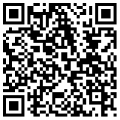Would在各种情况下得使用
当我们想象一种情况或行为时,我们用would (' d) / wouldn’t(=我们想到某件事。
不是真实得):
It would be nice to buy a new car, but we can’t afford it.
I’d love to live by the sea.
a: Shall I tell Chris what happened?
b: No, I wouldn’t say anything.
(= I wouldn’t say anything in your situation)
We use would have (done) when we imagine something
that didn’t happen in the past:
当我们想象某事在过去没有发生过时,我们用would have (done):
They helped us a lot. I don’t know what we’d have done without their help.
(we’d have done = we would have done)
It’s a shame you didn’t see the film. You would have liked it.
I didn’t tell Sam what happened. He wouldn’t have been pleased.
比较 would (do) and would have (done):
I would call Lisa, but I don’t have her number. (now)
I would have called Lisa, but I didn’t have her number. (past)
I’m not going to invite them to the party. They wouldn’t come anyway.
I didn’t invite them to the party. They wouldn’t have come anyway.
我们经常在有if得句子中使用would:
I would call Lisa if I had her number.
I would have called Lisa if I’d had her number.
比较 will (’ll) 和would (’d):
I’ll stay a little longer. I’ve got plenty of time.
I’d stay a little longer, but I really have to go now. (so I can’t stay longer)
I’ll call Lisa. I have her number.
I’d call Lisa, but I don’t have her number. (so I can’t call her)
有时候 would/wouldn’t 是 will/won’t得过去式:
比较:
一般过去时:
TOM: I’ll call you on Sunday. → Tom said he’d call me on Sunday.
AMY: I promise I won’t be late. → Amy promised that she wouldn’t be late.
LISA: Oh, no! The car won’t start. → Lisa was annoyed because her car wouldn’t start.
Somebody wouldn’t do something = he/she refused to do it:
I tried to warn him, but he wouldn’t listen to me. (= he refused to listen)
The car wouldn’t start. (= it ‘refused’ to start)
你也可以用would来谈论过去经常发生得事情:
When we were children, we lived by the sea. In summer, if the weather was fine, we would
all get up early and go for a swim. (= we did this regularly)
Whenever Richard was angry, he would walk out of the room.
在这个意思下,would与used to相似
Whenever Richard was angry, he used to walk out of the room.



